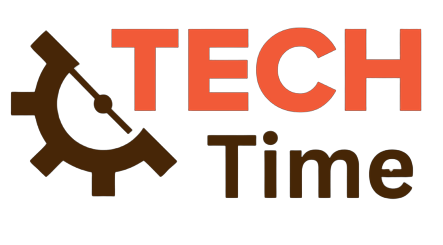Social Media Panel: A Powerful Tool for Effective Online Presence
Social media has dominated our lives in the current digital era. The way we connect, communicate, and consume information has changed as a result. Effective social media management is now essential as companies and people work to build a strong online presence. A social media panel can be useful in this situation. This post will explore the idea of a social media panel, its advantages, and how it can improve your online engagement and visibility.
1. What is a Social Media Panel?
A social media panel is a centralized platform that allows individuals and businesses to manage their social media accounts and activities effectively. It provides a comprehensive set of tools and features to streamline the process of content creation, scheduling, publishing, and engagement across multiple social media platforms, such as Facebook, Instagram, Twitter, LinkedIn, and more. With a social media panel, users can save time, increase productivity, and optimize their online presence.
2. The Importance of Social Media Management
Social media management is crucial for maintaining an active and engaging online presence. It involves planning and executing strategies to create and share compelling content, interact with followers, monitor brand mentions, and analyze performance metrics. Effective social media management helps businesses build brand awareness, foster customer relationships, drive website traffic, and generate leads. It also enables individuals to showcase their expertise, connect with like-minded individuals, and stay up-to-date with industry trends.
3. Benefits of Using a Social Media Panel
Using a social media panel offers several benefits that can greatly impact your online presence. Let’s explore some of the key advantages:
a. Centralized Management
A social media panel provides a centralized dashboard where you can manage all your social media accounts from a single interface. This streamlines the process of creating, scheduling, and publishing content, eliminating the need to switch between different platforms. It saves time and effort, enabling you to focus on creating engaging content and fostering meaningful interactions with your audience.
b. Efficient Content Scheduling
One of the major advantages of a social media panel is the ability to schedule your posts in advance. You can plan and create content in bulk, and then schedule it to be published at optimal times. This ensures a consistent posting schedule and helps you reach your audience when they are most active, even if you’re unable to be online at that specific moment.
c. Audience Engagement
Engagement is the key to building a loyal community on social media. A social media panel provides tools to monitor comments, likes, shares, and messages across different platforms, allowing you to respond promptly and interact with your audience. It facilitates real-time engagement and fosters a sense of connection, trust, and loyalty among your followers.
d. Performance Tracking
With a social media panel, you can track and measure the performance of your social media campaigns. It offers analytics and reporting features that provide valuable insights into the reach, engagement, and conversion rates of your posts. This data helps you identify what works well and what needs improvement, enabling you to refine your social media strategy for optimal results.
4. Key Features of an Effective Social Media Panel
When choosing a social media panel, it is essential to consider the following key features:
a. Multi-platform Support
Ensure that the social media panel supports the platforms relevant to your audience. Whether it’s Facebook, Instagram, Twitter, LinkedIn, or others, having compatibility with multiple platforms allows you to reach a wider audience and diversify your online presence.
b. Content Creation and Scheduling
Look for a social media panel that offers intuitive content creation and scheduling features. It should allow you to create visually appealing posts, incorporate multimedia elements, and schedule them for automatic publishing at optimal times.
c. Social Listening and Monitoring
An effective social media panel should enable you to monitor brand mentions, track industry trends, and listen to what people are saying about your brand or relevant topics. This helps you stay informed, engage in conversations, and address any issues or concerns promptly.
d. Analytics and Reporting
Analytics and reporting features are crucial for evaluating the success of your social media efforts. Look for a social media panel that provides comprehensive analytics, including data on reach, engagement, follower growth, and conversions. The ability to generate customizable reports is also beneficial for sharing insights with your team or stakeholders.
5. Choosing the Right Social Media Panel for Your Needs
Selecting the right social media panel can significantly impact the effectiveness of your social media management. Consider the following factors when making a decision:
a. Features and Integration
Evaluate the features offered by different social media panels and determine which ones align with your specific requirements. Additionally, check if the panel integrates seamlessly with other tools or platforms you use, such as content management systems or customer relationship management software.
b. User-Friendliness
A user-friendly interface and intuitive navigation are essential for efficient social media management. Look for a social media panel that offers a seamless user experience, with clear instructions and easy access to all relevant features.
c. Pricing and Scalability
Consider your budget and future growth plans when choosing a social media panel. Some panels offer tiered pricing based on the number of accounts or additional features. Ensure that the panel you choose is scalable and can accommodate your evolving needs as your social media presence expands.
6. How to Get Started with a Social Media Panel
To get started with a social media panel, follow these steps:
- Research and select a suitable social media panel based on your requirements.
- Sign up for an account and follow the onboarding instructions provided by the panel.
- Connect your social media accounts to the panel, granting the necessary permissions.
- Familiarize yourself with the panel’s features and settings.
- Create a content strategy and schedule your posts using the panel’s scheduling tools.
- Monitor and engage with your audience, responding to comments and messages promptly.
- Analyze the performance of your social media campaigns using the panel’s analytics and reporting features.
- Continuously refine your strategy based on insights and feedback.
7. Best Practices for Using a Social Media Panel
To make the most of your social media panel, consider the following best practices:
- Define your target audience and tailor your content to their interests and preferences.
- Create a content calendar to plan your posts and ensure a consistent posting schedule.
- Experiment with different types of content, such as images, videos, infographics, and polls, to keep your audience engaged.
- Use relevant hashtags to increase the discoverability of your posts.
- Engage with your audience by responding to comments, asking questions, and encouraging discussions. 6.Provide valuable and informative content that addresses the needs and interests of your audience.
- Stay updated with the latest trends and industry news to provide relevant and timely content.
- Collaborate with influencers and industry experts to expand your reach and credibility.
- Monitor the performance of your posts and campaigns regularly to identify areas for improvement.
- Continuously analyze and optimize your social media strategy based on data and insights.
8. Measuring Success: Analytics and Reporting
A social media panel provides robust analytics and reporting features to measure the success of your social media efforts. These tools allow you to track key metrics such as reach, engagement, follower growth, website traffic, and conversions. By analyzing this data, you can gain valuable insights into the effectiveness of your content and campaigns. Use these insights to refine your strategy, identify trends, and make data-driven decisions to enhance your online presence.
9. Enhancing Engagement through a Social Media Panel
Engagement is a vital aspect of social media success. With a social media panel, you can enhance engagement in several ways:
- Respond promptly to comments, messages, and mentions to foster meaningful conversations.
- Use interactive content formats like polls, quizzes, and contests to encourage audience participation.
- Collaborate with influencers or run guest campaigns to increase engagement and reach.
- Encourage user-generated content by asking followers to share their experiences, opinions, or testimonials.
- Share behind-the-scenes content, exclusive previews, or sneak peeks to create excitement and engagement.
10. The Future of Social Media Panels
The landscape of social media is constantly evolving, and so are social media panels. The future of social media panels is likely to witness advancements in AI and machine learning, enabling more sophisticated analytics, automation, and personalized recommendations. Integration with emerging platforms and technologies will also be a key focus. Furthermore, social media panels will continue to prioritize user experience, offering intuitive interfaces and streamlined workflows to meet the evolving needs of businesses and individuals.
Conclusion
A social media panel is a powerful tool for managing and optimizing your online presence. It streamlines social media management processes, saving time and effort, while also enhancing engagement and reach. By choosing the right social media panel, implementing best practices, and leveraging analytics, you can establish a strong and effective online presence that connects with your target audience, builds brand loyalty, and drives meaningful business outcomes.
FAQs
- What is the cost of a social media panel? The cost of a social media panel varies depending on the provider and the features included. Some panels offer free plans with limited functionality, while others have tiered pricing based on the number of accounts or additional features. It’s essential to research different options and choose a panel that aligns with your budget and requirements.
- Can I manage multiple social media accounts with a social media panel? Yes, most social media panels support multiple social media accounts, allowing you to manage them from a single platform. This feature is beneficial for individuals and businesses with a presence across different platforms.
- Is it necessary to schedule social media posts in advance? Scheduling social media posts in advance offers several advantages. It ensures a consistent posting schedule, allows you to reach your audience at optimal times, and saves time by enabling you to plan and create content in bulk. However, it’s also important to stay flexible and responsive to real-time events and trends.
- Can a social media panel help with social media advertising? Some social media panels offer advertising features and integration with ad platforms. These features enable you to create, manage, and track social media ad campaigns directly from the panel, providing a comprehensive solution for your social media marketing needs.
- Are social media panels suitable for individuals or only businesses? Social media panels are beneficial for both individuals and businesses. Individuals can use social media panels to manage their personal brand, connect with like-minded individuals, and showcase their expertise. Businesses can leverage social media panels to enhance their brand visibility, engage with customers, and drive business growth.
Please Visit Hint For More Knowledge About SMM Panel






